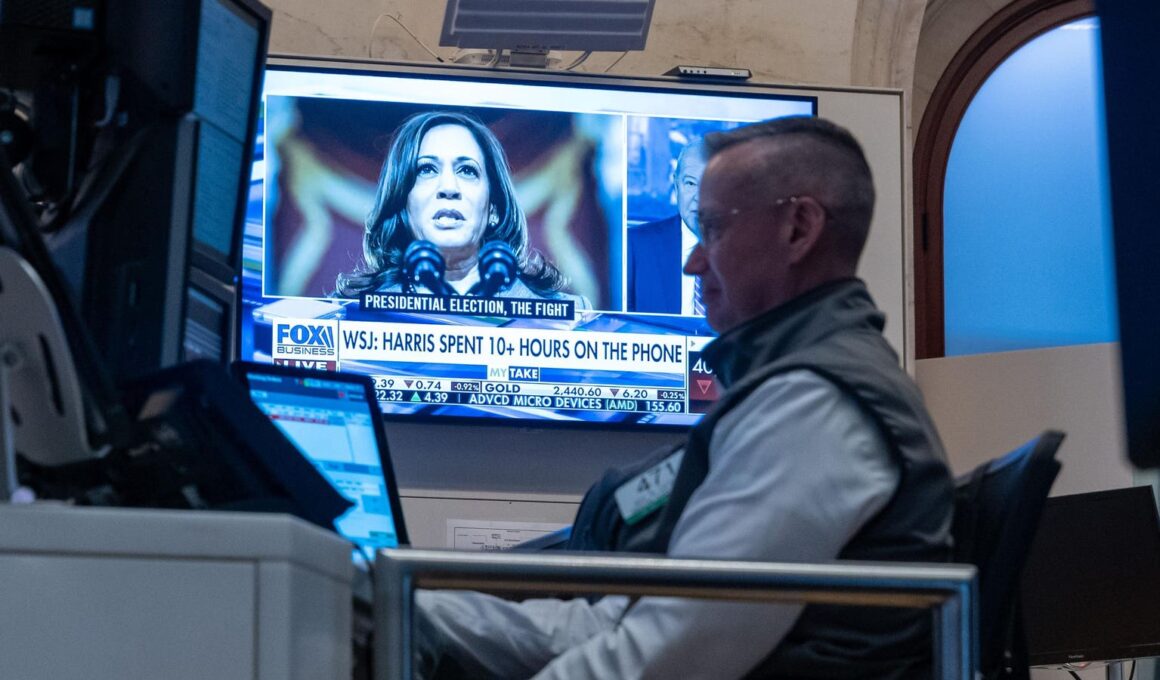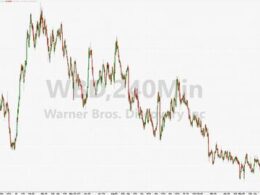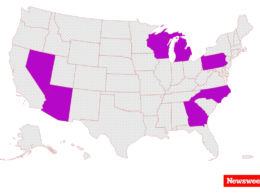Topline
Kamala Harris has a host of high-profile backers in the world of corporate finance, despite an often spotty history with Wall Street, including a “fight” with the chief of the nation’s largest bank, and analysts’ expectations for weaker performance across financial company stocks should Harris prevail over former President Donald Trump.
A television displaying Kamala Harris’ likeness at the New York Stock Exchange.
Key Facts
Among the financiers reportedly backing Harris are billionaires Jonathan Gray, president of asset manager Blackstone, Marc Lasry of credit investment firm Avenue Capital Management and hedge fund baron George Soros, while billionaires a degree removed from Wall Street supporting Harris include media magnate Barry Diller and construction tycoon Bob Clark.
Other major finance figures reportedly behind Harris include bank Lazard’s CEO and President Peter Orszag and Ray McGuire, tech-focused investment bank Evercore ISI cofounder Roger Altman and Robert Rubin, Goldman Sachs’ former co-chairman and the U.S. Treasury secretary during the Clinton administration.
The support comes even as Harris has a fairly limited public record on financial regulation to this point, but as California attorney general, she earned about $20 billion more for homeowners in a 2012 settlement with big banks for their mishandling of mortgages during the financial crisis and said in her 2019 memoir a call she had with JPMorgan Chase CEO Jamie Dimon during the settlement negotiations was “like two dogs in a fight.”
Perhaps her most relevant action in her four years in the Senate was her 2019 sponsorship of a “Accountability for Wall Street Executives Act” bill which would have allowed state prosecutors to subpoena bank records to investigate financial fraud.
Notable Wall Street billionaires supporting Trump include former TD Ameritrade chairman J. Joe Ricketts, famed mortgage-backed securities short investor John Paulson and Stephen Schwarzman, Gray’s boss at Blackstone.
What Would Kamala Harris Mean For Banks?
It is unclear what Harris’ policies toward banks would be given Harris’ sparse history on the subject, but analysts still expect Donald Trump would be far friendlier to financial firms, and thus boost their stocks. In fact, UBS strategists led by Jonathan Golub identified the sector as the group which “should benefit most from a Trump victory.” That’s because of Trump’s promise to rid Wall Street of “burdensome regulations,” which should notably help restart the dealmaking that investment banks rely on heavily for profits. Mergers and acquisitions and initial public offerings entered a lull under President Joe Biden, which can be traced to hesitation caused by significant legal challenges under his administration, including prosecutors filing a record number of company merger probes in 2023. Morgan Stanley strategists led by Michael Wilson similarly identified bank stocks as one of the top potential winners of a Trump victory, and the sector has often rallied as betting odds of a Trump win increased.
Contra
The dealmaking slump is also a result of the Oval Office-independent uptick in interest rates, which shot up beginning in 2022, leading to the second and third-largest bank failures in American history last year when California-based First Republic and Silicon Valley Banks went belly up. Wall Street firms would surely revel in decreased regulation, but the group actually performed much better on the stock market under Biden thus far than it did during Trump. The S&P 500’s financial sector rose by 24% from Election Day 2016 to Election Day 2020, while it’s up 75% since Election Day 2020. Financials did shoot up by 11% immediately after Trump’s 2016 victory.
Get Forbes Breaking News Text Alerts: We’re launching text message alerts so you’ll always know the biggest stories shaping the day’s headlines. Text “Alerts” to (201) 335-0739 or sign up here.
Further Reading
Trump Media to the Saudi Arabian influence on golf and what real-life billionaires think of ” Succession.” Send tips to dsaul@forbes.com. Follow Saul for analysis on the biggest daily economic and stock market happenings, ranging from inflation data to tech earnings to deep-dives on hot button assets.
“>








